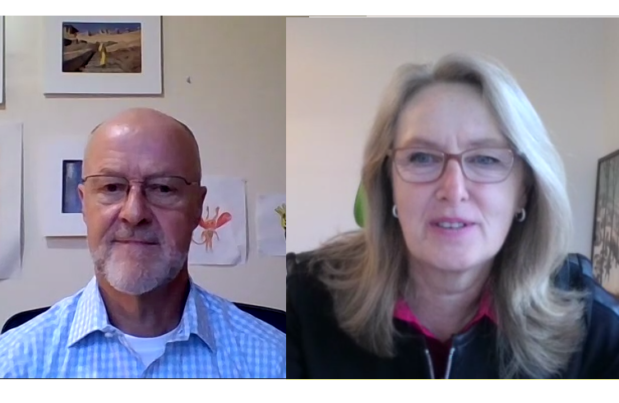Since the 1990s, there have been significant changes in the culture of the International Atomic Energy Agency (IAEA), in particular the way in which the IAEA plans, implements and evaluates safeguards. These changes have influenced how the IAEA addresses new challenges today, as well as how the IAEA coordinates with Member States on safeguards matters. This is the topic of Dr. Trevor Findlay’s new book, “Transforming Nuclear Safeguards Culture: The IAEA, Iraq, and the Future of Non-Proliferation,” which was launched at a VCDNP webinar on 26 January 2023. VCDNP Executive Director Elena K. Sokova moderated the launch event.
The book investigates the role of organisational culture in the nuclear non-proliferation regime, specifically in the IAEA safeguards system. Dr. Findlay devotes a substantial part of the book to the impact of the discovery of Iraq's undeclared nuclear weapons programme on how the IAEA and Member States view safeguards effectiveness and efficiency. He also discusses how organisational culture may have contributed to the IAEA's inability to detect Iraq's efforts to acquire illicit nuclear capabilities.
In the book, Dr. Findlay looks at safeguards culture through three analytical lenses: political, institutional, and cultural.
- In terms of political factors, Dr. Findlay noted that the IAEA safeguards system was established, funded, and negotiated by States, thus introducing an inherently political element into safeguards culture.
- On the institutional dimension, he observed that the IAEA ranks among the most efficient organisations of the UN system, but it faces the classic dilemma of international organisations: autonomy of the Secretariat on the one hand versus deference to its Member States on the other.
- Regarding cultural factors, he said that the values, norms, and perceptions that define an organisation are difficult to analyse, but they still impact organisational success.
Dr. Findlay emphasised that early safeguards, such as those implemented in Iraq pre‑1991, were modest as compared to today. His research also demonstrated improvements in training and debriefing inspectors since the discovery of Iraq’s clandestine nuclear programme, in part related to changes in the organisational culture in the Department of Safeguards. Ultimately, he observed that oftentimes major culture shifts are the result of shocks to the system, such as in the case of Iraq.
However, Dr. Findlay noted that in his view, the IAEA’s safeguards culture has “moved on” from the Iraq case, in that its focus in safeguards has moved from a tacit focus on correctness of States’ declarations to an explicit recognition of the importance of their completeness, as well. Some “artifacts” Dr. Findlay referenced in this regard are the Model Additional Protocol and the shift from safeguards at the facility level to the State‑level concept.
In the words of VCDNP Non‑Resident Senior Fellow John Carlson, Dr. Findlay’s book “casts new light on a complex subject, enabling a non-specialist reader to better understand some of the issues and influences affecting how the safeguards system has developed, and identifying a key area — namely safeguards culture — where serious focused effort can deliver substantial international benefit.”
The full recording is available below.

